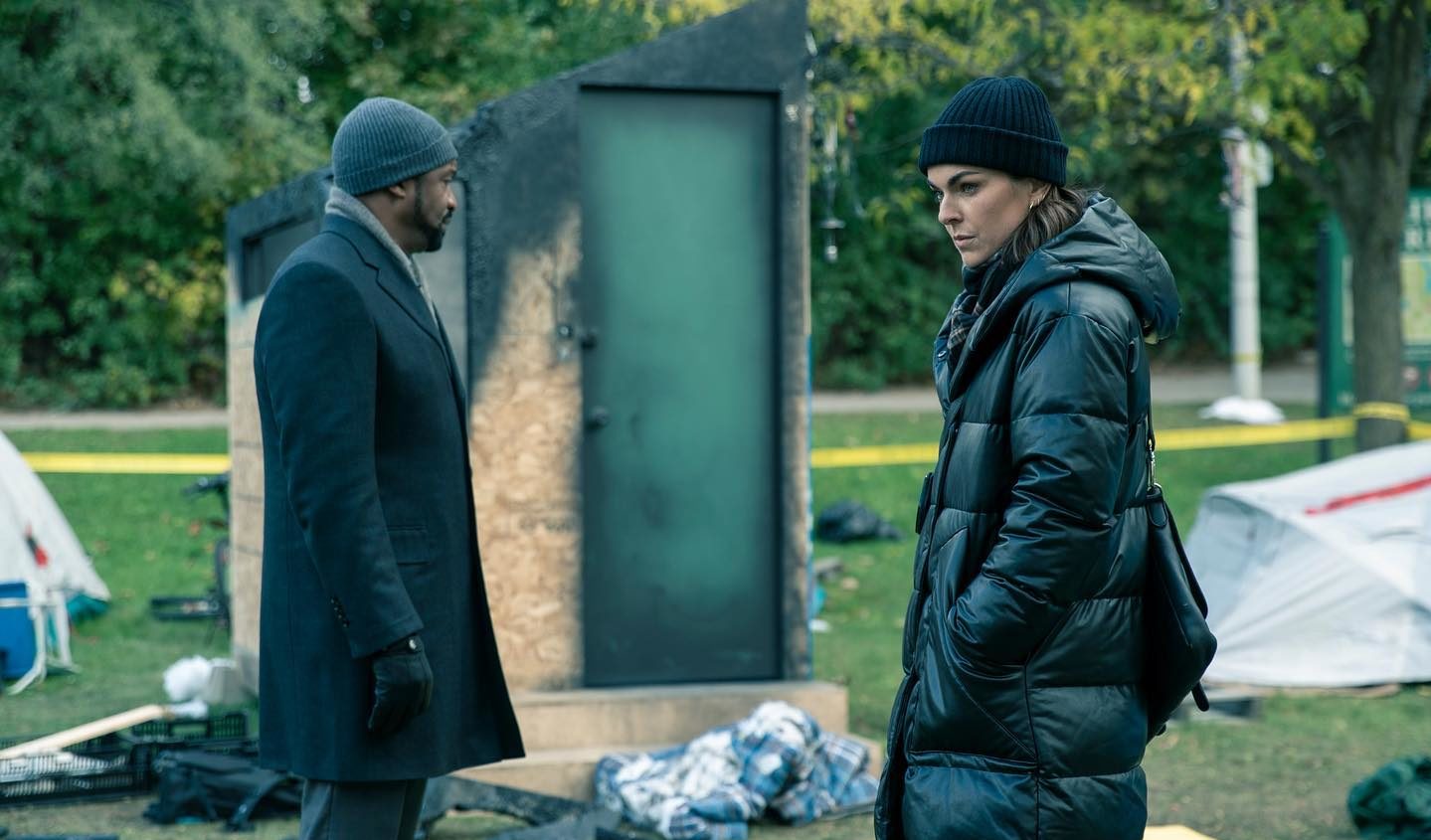The best joke is that you see Pooh’s round ears and button-nose in ominous shots where Leatherface or Michael Myers are supposed to be, with red overalls and a rubbery mask that’s frozen to a type of honey-suckling grin. Judging from the mildly amused reactions of other people in the theater, those reveals are the film’s most consistent chuckles, and I agree. You never get tired of seeing Frake-Waterfield’s version of Pooh and Piglet (portrayed by Craig David Dowsett and Chris Cordell, respectively) pitched as towering psychopaths, but the movie also makes you wish it tried harder.
“Winnie-the-Pooh: Blood and Honey” struggles to be notable outside of its irreverent IP comic relief, despite simplifying itself. Take away the Pooh and Piglet stuff, and you have a ho-hum stalker thriller that treats its one-dimensional characters as punchlines for gory scenes its budget can’t fully deliver on. In this case, five women (Maria Taylor, Natasha Tosini, Natasha Rose Mills, Amber Doig-Thorne, and Danielle Ronald) have gathered at a remote cabin near Pooh and Piglet’s kingdom of sadism. Frake-Waterfield doesn’t even humor us with much development or care for these women; we know that one of them, Maria Taylor’s Maria, is traumatized by a man who stalks her back in the city, and this is her getaway. “Blood and Honey” then lumps her in with other easy targets for easier shocks: the women are as gullible as anyone deeply offended by this movie, and we’re meant to laugh at each poor choice these characters make.
A sentence I never thought I’d write: Pooh and Piglet proceed to terrorize these women, with a few other victims thrown in, sometimes in a way akin to ritual sacrifice. It only becomes uneasy when it becomes so obvious. It’s a lot of women—many with black hair, curiously—experiencing head trauma. Oh, bother.
Whether one finds this movie’s promise giddy or gross, the terror scenes are much too drawn out, stuffed with extraneous beats that create dead air. There are many improvised-looking of scenes of stalking or screaming for help, in which everyone is stuck waiting for a greater storytelling vision to round out the joke. One scene that lacks self-awareness has Piglet walking in a shallow indoor pool, wielding a sledgehammer at his prey. A funny set-up, but the scene itself can barely move. The whole project has that baffling defect—how do you cut a premise like this down to the bone, with Pooh and Piglet more or less rampaging for 85 minutes, and make the movie so boring?
























































![Key Metrics for Social Media Marketing [Infographic] Key Metrics for Social Media Marketing [Infographic]](https://www.socialmediatoday.com/imgproxy/nP1lliSbrTbUmhFV6RdAz9qJZFvsstq3IG6orLUMMls/g:ce/rs:fit:770:435/bG9jYWw6Ly8vZGl2ZWltYWdlL3NvY2lhbF9tZWRpYV9yb2lfaW5vZ3JhcGhpYzIucG5n.webp)


















